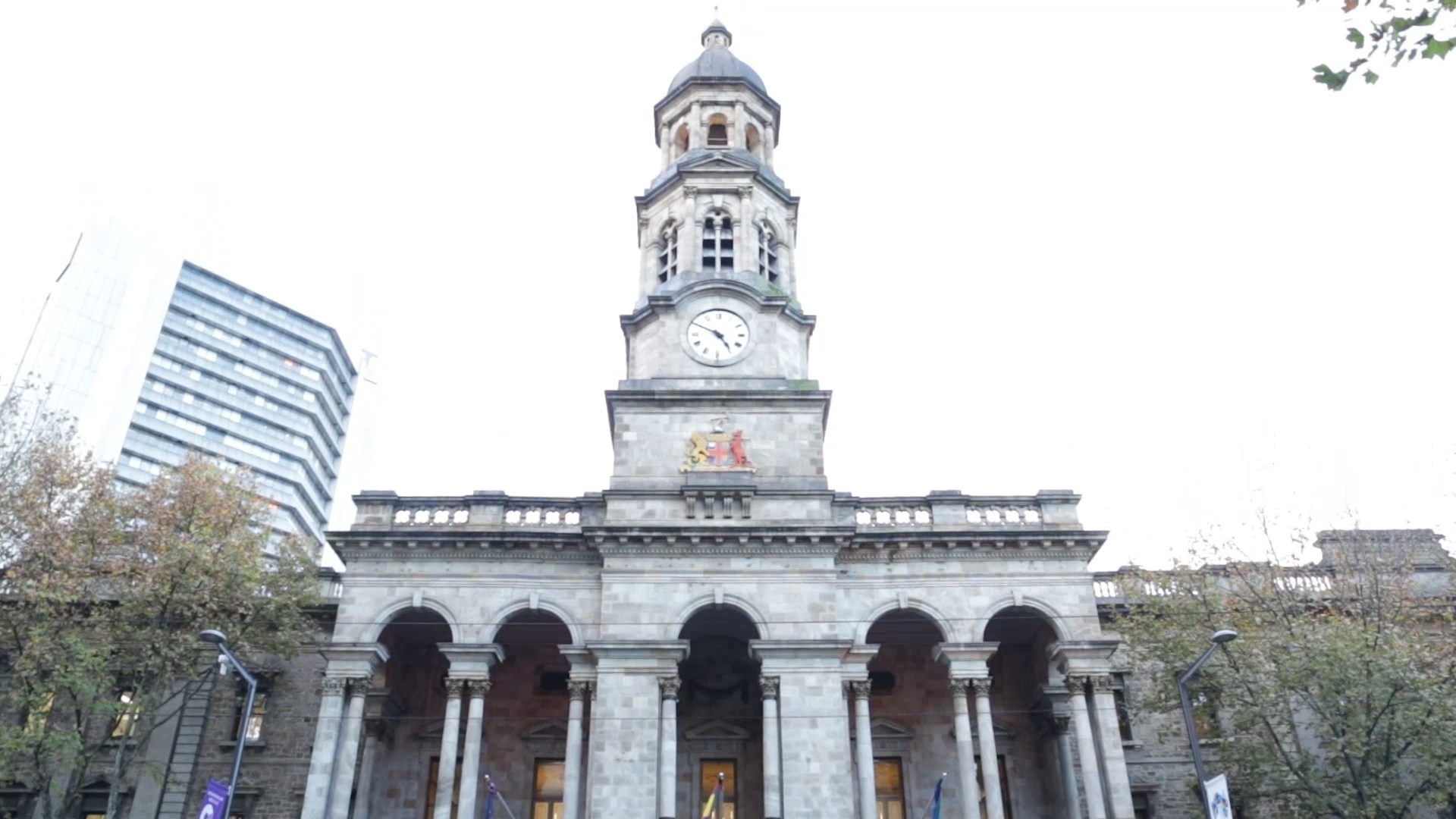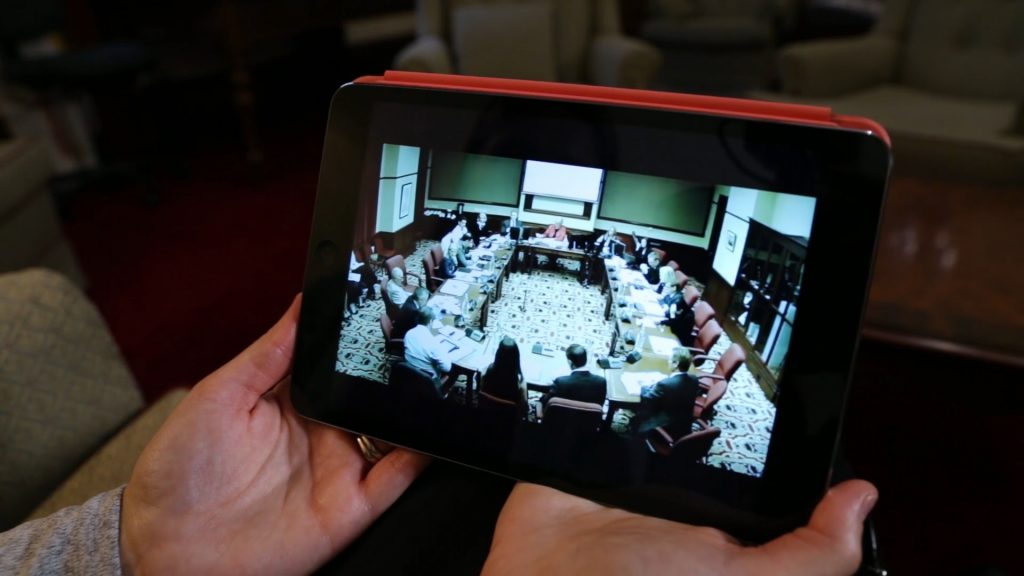In 1840, Adelaide City Council became the first democratically elected government of any kind in Australia – and it wasn’t the last time it would make history. In 2015, the council became the first in Australia to live stream its Council Committee Meetings using Skype for Business’s module Skype Meeting Broadcast – bringing some of the newest technology to the oldest council of Australia.
Adelaide is home to 1.3 million people, with 23,000 residents in the City of Adelaide itself. The commercial heart of wider metropolitan Adelaide, it is also home to the central business district, universities, hospitals and sporting infrastructure. Each day 220,000 people commute into the city.
In 2015, the people of Adelaide elected a new city council – one that was passionate about using technology in innovative ways to reach its constituents. “What’s really important for us from a political perspective is to reach out to as many people as we can,” says Central Ward Councillor Houssam Abiad. “How do we go out to the community without having to leave town hall? We need to do that because, to some degree, we have seen over the last decade that fewer and fewer people are engaged in local government.”
The council decided to use the technology available to live stream Council Committee Meetings to the public, creating a new level of engagement with its constituents. “If we chat about being a smart city, that’s about a city that embraces technology,” says Lord Mayor Martin Haese. “That means using technology cleverly to improve not only our infrastructure, but also our communications.”
Before Skype Meeting Broadcast, the council was already looking for groundbreaking ways to harness technology to improve its communications. “We were looking for a platform that could integrate technology that didn’t yet exist,” says Team Leader of Internal Communications Technology, Infrastructure and Operations, David Carroll.
Initially, the council was using Lync, Skype for Business’s predecessor, but found that while it was “very holistic and fully integrated” it wasn’t ideal for broadcasting Committee Meetings, says David. “We had a lot of issues during the trial, and they all centred on the client and where constituents or members of the public were watching. Whether it be on an iPad or an Android device or Google Chrome or Safari or Internet Explorer, there was a need for a plug‑in.”
But once Skype Meeting Broadcast was launched, the council knew it had the technology it needed. “After I introduced the Skype for Business Broadcast, it took all of maybe two minutes to be convinced that that was actually the delivery platform for us,” says David.
After changing the council’s Microsoft tenancy to Australia, which took David five minutes to do on the train to work, Skype for Business up and running within two days. “It solved all of our issues that we had,” says David. “We deliver a very high definition video and audio output and it works on any device whether it be a mobile phone, a tablet, Windows, Android, Apple or Chromebook – it just works.”
Despite being the first customer to deploy Skype Meeting Broadcast in Australia, the council was unconcerned. The step-by-step approach and minimal equipment needed to set up the cloud-based platform meant that the implementation process was stress-free. “There was really nothing to be afraid of,” says David. “To get something up and operational is really quite simple and easy these days. We took it from test phase and into production use within two weeks.”
While implementing the technology may have been easy, encouraging council employees to adopt Skype Meeting Broadcast required strategic thinking. “In a council where you’ve got 12 members and 1,000 employees, change is challenging,” says Houssam.
To meet this challenge, David created a new procedure that would be easy for staff members to take up. “It’s only three bullet points long,” says David. “Generate the meeting URL. We then publish that on our website and come meeting time, click on the link, start the broadcast. That’s it. It records magically in the background.” Soon, the whole council was picking up Skype Meeting Broadcast. “They start to get that sparkle in their eye and they start to understand a bit more about technology, then it starts moving and mobilising across the whole organisation,” says Houssam.
Council employees’ productivity has been vastly improved by the broadcasts as they not only feel more accountable during Committee Meetings but no longer need to be physically present, instead they can tune in from their phone or from home. In addition, employees often have to be available for Committee Meetings in case their opinion is needed. Now, instead of waiting outside the room they can continue working and wait to be called on their device via Skype for Business or they can even keep an eye on the live broadcast.
https://www.youtube.com/watch?v=-XzeOa3XUfs&feature=youtu.be
The broadcasts have been embraced by the people of Adelaide. Typically, each Committee Meeting is viewed by up to 130 people, with one meeting attracting 500 viewers. The public viewing gallery located in the council’s meeting room can only fit about 50 people, which means this is the highest level of engagement the council has ever had.
This strong engagement reflects not only how simple the process is for council employees but also how if you make it easy, people will connect and engage. Constituents can watch a Committee Meeting on any device, anywhere with an internet connection, simply by clicking on a link on the council’s website. “We’re now able to provide everybody in the City of Adelaide, nationally, overseas, anywhere in the world, a platform to engage and listen to the debate. We can help form that vision for a smart, liveable, green and creative city,” says Martin.
The council is now looking at even more ways to promote dialogue with its constituents, such as responding to tweets sent by viewers in real time. It is also considering enabling constituents to address council via Skype for Business from anywhere in the world and streaming all council events such as concerts and speeches. “What I’m trying to do is take it to the next level,” says Houssam. “Engage the thousands, as many people as we can, so they can be part of the process. They might all disagree with me, but that’s democracy.”






